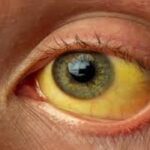Tachycardia Definition, Reason, Symptoms, Treatment & Prevention
Definition
Tachycardia or tachycardia is a condition where the heart rate is above normal. In normal humans, the heart beats regularly as much as 60-100 times per minute. Tachycardia occurs when the heart beats more than 100 times per minute, whether it beats regularly or irregularly.
If the heart rate is too fast, the heart is not able to pump blood around the body properly. In addition, the heart muscle will also work harder so that it requires more oxygen. Therefore, life-threatening complaints often arise if the heart rate is too high.
Tachycardia Symptoms
Symptoms of tachycardia in some cases are more subtle or do not cause symptoms. But generally, symptoms of tachycardia show the following signs:
- A sensation of pounding chest
- Chest pain
- Breathing difficulties
- Dizziness or a feeling of floating head
- Loss of consciousness
- The body feels weak
- Faint
Tachycardia Reason
There are many causes of tachycardia, some of which are:
- Certain drug side effects
- Disruption of the heart’s electrical flow
- Congenital defects of the heart
- Heart failure
- Coronary heart disease
- Hyperthyroidism
- Excessive alcohol consumption
- Electrolyte disturbances
- Users of cocaine, ecstasy and other stimulant drugs
Diagnosis
To find out if there is tachycardia, the doctor only needs to check the pulse on the wrist. If the pulse is >100 beats/minute, then tachycardia is occurring. Furthermore, to find out the type of tachycardia, the doctor will ask to do an examination of the heart record (electrocardiogram / EKG).
Other tests that can be done to find out the cause of tachycardia are:
- Holter monitor, this tool is attached to the body of a person with tachycardia to record all the electrical activity of the heart for 1-2 days.
- Blood tests, if tachycardia is suspected due to hyperthyroidism or electrolyte disturbances, this examination needs to be done.
- An echocardiography, this examination is performed if tachycardia is suspected to occur due to abnormalities in the heart.
- Electrophysiological examination
Tachycardia Treatment
Tachycardia treatment is determined based on the cause of the tachycardia. In general, the goal of tachycardia treatment is to slow the heart rate and prevent the tachycardia from recurring.
If a person experiences complaints that match the symptoms of tachycardia, he must be immediately taken to the hospital. Generally, the person will be given a tachycardic drug such as an injection to lower the heart rate. If the condition is severe tachycardia, not infrequently heart shock therapy (cardioversion) also needs to be done.
Prevention
To reduce or prevent tachycardia, avoid consuming substances that can trigger an increase in heart rate. For example nicotine, decongestants for colds, stimulant drugs (such as cocaine and ecstasy), and alcohol.










